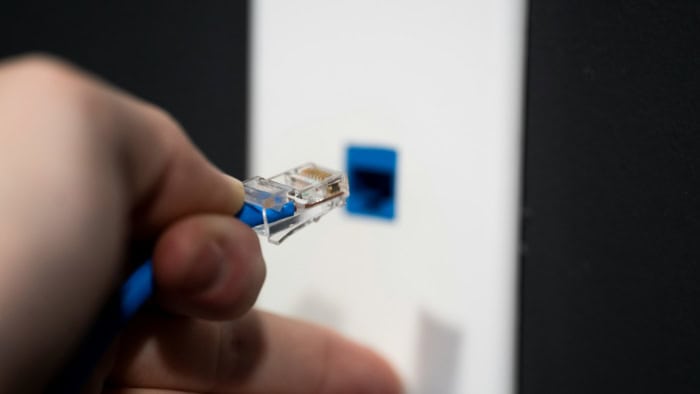Packet Loss vs. Ping: What’s the Difference?

A smooth and reliable internet connection is something we often take for granted until issues like lag or interruptions disrupt our experience. Two critical factors that determine the quality of any network connection are ping and packet loss.
Ping, often referred to as latency, measures how quickly data travels between devices, while packet loss reveals how much of that data fails to arrive at its destination. Together, these metrics play a vital role in shaping your online activities, from competitive gaming and streaming to remote work and video conferencing.
Definitions and Key Differences
Understanding the concepts of ping and packet loss is essential for evaluating network performance. While both metrics reveal important characteristics of a connection, they serve distinct purposes and address different aspects of data transmission.
What Is Ping?
Ping refers to the round-trip time it takes for data to travel from your device to a server and back again. It is typically measured in milliseconds (ms), and lower values represent faster and more responsive interactions.
For example, when playing an online game, a lower ping ensures that your inputs are registered almost instantly, reducing delays and optimizing the overall experience.
The measurement of ping is often visualized as latency. A responsive connection, with latency under 50 ms, is perfect for applications like gaming and video calls.
Conversely, high ping, often exceeding 150 ms, can lead to noticeable delays in communication, resulting in frustration during real-time interactions.
What Is Packet Loss?
Packet loss occurs when data packets fail to reach their destination while traveling across a network. These packets carry critical information, such as video or audio streams, and their loss disrupts the smooth delivery of content.
Packet loss is typically expressed as a percentage, with 0% signifying an ideal scenario. Even minor packet loss, above 1–2%, can impact applications like VoIP calls, online meetings, or streaming services, leading to frozen frames, distorted audio, or dropped connections.
Unlike ping, which measures speed, packet loss reveals network reliability. Frequent packet loss might indicate underlying issues such as congestion, hardware faults, or interference.
If left unresolved, this can significantly degrade performance, making certain tasks challenging or even impossible.
Comparative Analysis
Ping and packet loss are closely related yet fundamentally different. Ping reflects the speed at which data is exchanged, monitoring delays between devices.
Packet loss, on the other hand, assesses the consistency and integrity of the data transfer. While a low ping may suggest a fast connection, packet loss can undermine that speed by preventing the successful delivery of information.
For instance, a gamer with low ping but moderate packet loss might still experience stuttering or interruptions, highlighting the need to evaluate both metrics for optimal performance.
Impact on Performance and User Experience

The quality of a network connection is more than a measure of speed; it directly influences how well online applications function and how immersive or frustrating the experience becomes. Ping and packet loss, two critical metrics, have distinct yet equally significant impacts on performance, particularly in activities that depend on real-time communication, gaming, or streaming.
Effects of High Ping
High ping creates an observable lag between an input on your device and the corresponding response from the server. This delay can disrupt real-time applications like video conferencing, remote collaboration, and competitive gaming by making interactions feel less immediate or even unresponsive.
Gamers, for instance, often describe high ping as “lag,” where their commands result in delayed or out-of-sync actions, such as missing shots in a first-person shooter or experiencing rubber-banding effects in fast-paced multiplayer games.
The impact becomes particularly noticeable in activities requiring precise timing. Competitive gaming is a prime example; a ping exceeding 150 ms can leave players struggling to execute actions in real time, often causing frustration or lost matches.
Similarly, in virtual meetings, high ping can lead to delayed audio and video, making conversations feel disjointed and less engaging. While high-speed internet can minimize ping issues, geographic distance, server loads, and wireless interference are common factors that contribute to higher latency, especially if not actively managed.
Effects of Packet Loss
The effects of packet loss tend to be more disruptive and visible, especially in applications requiring consistent and reliable data delivery. When packets carrying vital information fail to arrive at their destination, the loss manifests as stuttering, freezing, or corrupted data.
In VoIP calls, packet loss can distort or cut out audio entirely, making conversations unintelligible even with high-speed internet. Similarly, streaming services and online games may experience visual glitches, abrupt disconnections, or incomplete transmissions, significantly impacting user satisfaction.
A packet loss rate of even 2% can wreak havoc on real-time communication systems. For instance, live audio feeds could experience missing segments or distorted speech, while video streams degrade into pixelation or buffering.
In such scenarios, a reliable network is more critical than a fast one. Identifying the underlying cause, whether it’s network congestion, hardware issues, or faulty connections, can help minimize packet loss and restore smooth operation.
Diagnosing Network Issues

Network performance problems can be frustrating, but effectively diagnosing the root causes of high ping and packet loss is the first step toward resolving them. By utilizing the right tools and interpreting the results correctly, it becomes easier to pinpoint where the issues are occurring, whether they originate in your local network or somewhere along the path to the destination server.
Tools for Testing
Diagnosing network issues such as high ping or packet loss requires using the right tools combined with clear instructions. Below is a detailed step-by-step guide on how to perform network tests using commonly available utilities.
Ping Command
The ping command is a basic yet effective tool for checking latency and packet delivery. It allows you to send data packets to a target server and measure the time taken for the response to return. Follow these steps to use it:
- Access the Command Prompt or Terminal
- On Windows: Press the Windows + R keys, type cmd, and press Enter.
- On macOS/Linux: Open the Terminal application from the system menu.
- Enter the Ping Command
Type the word ping followed by the IP address or domain name of the target server. For example, to test Google’s public DNS, type: ping 8.8.8.8. - Review the Results
The tool shows the response time for each packet (in milliseconds) and provides a summary at the end, including:
- Average latency (low values like 30 ms are ideal; values above 150 ms are problematic).
- Packet loss percentage (should always be 0%).
If the ping values are consistently high or there is packet loss, it indicates latency or reliability issues in the network.
PathPing
PathPing combines the functions of ping and traceroute, providing detailed latency and packet loss statistics for each hop in the connection path. Follow these steps to perform a PathPing test:
- Open the Command Prompt
On a Windows computer, press Windows + R, type cmd, and press Enter. - Run the PathPing Command
Enter pathping followed by the IP address or domain name of the server you want to test. For example, type: pathping 8.8.8.8. - Wait for the Analysis
PathPing will trace all network nodes between your device and the target server, then analyze latency and packet loss at each node. - Interpret the Results
- Each node represents a hop along the route.
- High latency or packet loss at specific hops suggests network congestion, faulty hardware, or other issues at that point.
Focus on the final hop to determine if your local network is stable or if the problem lies farther down the route.
MTR (My Traceroute)
MTR provides continuous, real-time monitoring of latency and packet loss along the entire network route, making it ideal for identifying intermittent issues. To use MTR:
- Install the MTR Tool
- On Windows: Download WinMTR (a graphical version of MTR) from its official website and install it.
- On macOS/Linux: Install MTR through a package manager (e.g., use Homebrew for macOS or APT for Ubuntu).
- Run MTR
- On Windows: Open WinMTR, enter the target IP or domain (e.g., 8.8.8.8), and click “Start.”
- On macOS/Linux: Open the Terminal, type mtr followed by the target IP or domain, and press Enter.
- Analyze the Output
MTR shows the following for each hop in the route:
- IP address and hostname of each node.
- Real-time latency values.
- Packet loss percentages.
Continuous output helps detect spikes in latency or temporary packet loss, which are often caused by network congestion or hardware issues. Focus on identifying patterns, such as consistent packet loss at certain hops.
Using these tools allows you to gain valuable insights into your connection’s performance. By pinpointing the source of issues, whether local or external, you can take steps to optimize your network for smoother and more reliable connectivity.
Interpreting Results
Analyzing the data provided by these tools is crucial to understanding what might be wrong with the connection. Low latency with 0% packet loss at the final hop generally indicates a stable local network, which means issues are likely being caused externally.
On the other hand, high ping or packet loss at intermediate hops might suggest network congestion or routing inefficiencies.
It’s also important to differentiate between intermittent spikes in ping and consistent issues. A sudden spike might be caused by temporary interference, such as bandwidth-heavy activity on another device within the network.
However, persistent high ping or packet loss often points to more systemic problems like faulty hardware or an overloaded ISP. Being able to identify these patterns helps in targeting the underlying cause more effectively.
Strategies for Improvement

Enhancing network performance involves addressing both latency and reliability to ensure a smoother and more consistent connection. High ping and packet loss can often be mitigated through practical strategies that target the underlying causes, ranging from optimizing hardware to tweaking software settings.
Reducing Ping
Lowering ping is critical for improving responsiveness in real-time applications. Prioritizing a wired Ethernet connection over Wi-Fi often yields immediate results, as it eliminates interference from walls, other devices, and signal fluctuations.
Ethernet provides a direct and stable connection to the router, ensuring minimal latency compared to wireless setups.
Connecting to servers closer to your geographic location can also make a substantial difference. Nearby servers reduce the physical distance that data must travel, leading to faster response times.
Many online platforms and games feature geolocation routing, allowing users to select regional servers for optimized performance. This approach is particularly effective for competitive gaming and video conferencing, where every millisecond matters.
Additionally, limiting background activities on your network can help reduce latency. Activities like large downloads, simultaneous streams, or other bandwidth-intensive tasks compete for resources, increasing ping.
Ensuring that your device is focused on the critical task can minimize delays and improve responsiveness.
Minimizing Packet Loss
Maintaining consistent packet delivery requires addressing factors that interfere with data transmission. Restarting routers or modems is a simple yet effective solution for clearing temporary glitches or misconfigurations.
Regular reboots can refresh the connection and resolve minor instability affecting packet flow.
Adjusting router settings to prioritize specific types of traffic is another useful strategy. Many modern routers include Quality of Service (QoS) settings, allowing users to assign higher priority to tasks such as gaming, VoIP calls, or video streaming.
By ensuring critical packets are delivered promptly, QoS helps reduce stuttering, dropped calls, and interruptions during important activities.
Physical checks also play a role in reducing packet loss. Loose or damaged cables may disrupt data transmission, so ensuring all connections are secure and replacing faulty equipment can eliminate unnecessary packet loss.
When paired with proper router placement to minimize signal interference, these steps contribute to a more reliable network environment.
Hardware and Software Fixes
Outdated hardware and software often contribute to persistent network issues, making upgrades essential for improving performance. Replacing old routers and switches with newer models featuring advanced technology can make connections more reliable and efficient.
Modern devices typically include features such as dual-band Wi-Fi, beamforming, and improved signal management, all of which address common network challenges.
Keeping network drivers and firmware up to date is equally important. Manufacturers frequently release updates to fix bugs, enhance security, and improve functionality.
Checking for updates regularly ensures that your equipment performs optimally, reducing issues like packet loss or unnecessary latency.
Taking a proactive approach by combining hardware upgrades with software optimizations creates a robust and reliable network setup. Whether addressing lag or ensuring smooth data delivery, these strategies lay the foundation for seamless connectivity across all activities.
Conclusion
Ping and packet loss are two critical components that define the quality and reliability of a network connection. While ping measures the speed of data transmission and reflects latency, packet loss focuses on the integrity and consistency of that data.
Both play distinct roles in determining how smoothly online applications function, especially in scenarios such as gaming, streaming, video conferencing, and remote work. High ping introduces frustrating delays, while packet loss leads to interruptions or corrupted data, making real-time tasks difficult.
Improving network performance requires a combination of proactive measures tailored to specific needs. Prioritizing wired Ethernet connections offers a stable and interference-free foundation, particularly for latency-sensitive activities like gaming.
Monitoring network metrics with diagnostic tools ensures that issues such as spikes in ping or packet loss are identified and addressed promptly. Tackling root causes, whether through hardware upgrades, software updates, or optimized router settings like QoS, helps build a reliable and efficient network environment suitable for any application.
By understanding the unique demands of your online activities and applying targeted solutions, it is possible to minimize disruptions and enjoy seamless connectivity that enhances both productivity and entertainment.


